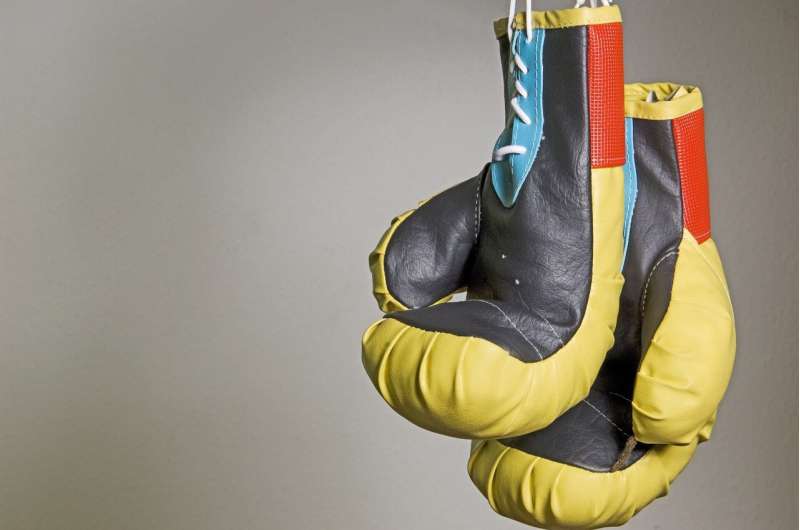This article has been reviewed according to Science X's editorial process and policies. Editors have highlighted the following attributes while ensuring the content's credibility:
fact-checked
trusted source
proofread
Toxic Olympics gender debate emphasizes the struggles of cis and trans women athletes, says academic

The gender firestorm that has erupted at the Paris Olympics surrounding Algerian boxer Imane Khelif only highlights the challenges all women athletes face, according to a University of South Australia academic.
Connor MacDonald, who researches socio-cultural aspects of sport with a focus on LGBTQIA+ inclusion and diversity, says essentialist or "black and white thinking" is heavily entrenched in sport and harms athletes who participate at elite and community levels, especially women, LGBTQIA+ individuals and people of color.
Two women boxers at the 2024 Paris Olympics, Algeria's Imane Khelif and Taiwan's Lin Yu-ting, have become the subjects of fierce media debate after it was discovered they failed a gender test set by the International Boxing Association (IBA) and were consequently disqualified from the World Championships in 2023.
However, the International Olympic Committee (IOC) questioned the decision and the IBA's administration more broadly, accusing the organization of wide-scale corruption. The IOC declared both women eligible for the Paris games as they were both assigned female at birth and identify as women.
They are not transgender, but have been incorrectly labeled as such in media reports and on social media, with public figures JK Rowling, Elon musk and social media personality Logan Paul all fueling speculation around Khelif's gender.
A firestorm erupted on 1 August when Khelif won a match against Italian boxer Angela Carini in just 46 seconds. Carini bowed out of the fight, stating she had never been "hit so hard" in her life. The match fueled public outcry and speculation surrounding Khelif's sex, with some believing her strength and power was unfair and unsafe for other female competitors.
MacDonald says elite sport has a long history of questioning the gender of high performing female athletes and while he was saddened by recent events surrounding Khelif, he wasn't surprised.
"Historically, black and brown women have been perceived as not fitting white notions of femininity and seen as being too masculine," he says.
"I feel terrible for Khelif, but these events haven't surprised me. Her being from where she is, the color of her skin, it's not surprising that her gender has been questioned—especially considering Khelif, a woman of color, was competing against a white Italian boxer."
While the two boxers aren't transgender, MacDonald says the issue has reignited debate around the "vilifying and fear mongering" against some trans women athletes, who have been accused of being "men masquerading as women." He says this persistent narrative not only harms trans athletes but cis women (women who were assigned female at birth and identify as such), especially if they are of color.
"Successful women athletes are continually questioned, especially if they don't fit dominant understanding of femininity, such as being toned and petite. I think of athletes like Serena Williams and Brittney Griner who have not only been disparagingly compared to men, but had accusations levied that they are in fact men," MacDonald says.
"If claims, such as trans women athletes pose a threat to cis women and the integrity of sporting competitions, are taken for granted and left standing, women's sporting prowess and their bodies will continue to be policed."
In Australia, attempts to make sport more inclusive for people of all gender identities have been made by some organizations. In 2019, Sport Australia published its Trans and Gender Diverse Inclusion guidelines, with the Australian Football League and Cricket Australia following suit with their own policies shortly after.
"If sports organizations can challenge persistent issues of exclusion for trans people, and push back against racism and sexism, this will better sports for everyone," MacDonald says. "It is a mix of sexism, racism and transphobia that has spurred this hatred towards Khelif, and we will see more episodes of this if we don't come up with ways to improve."
Provided by University of South Australia





















